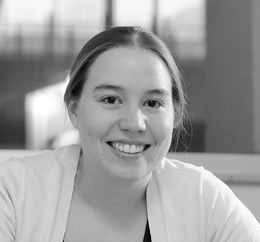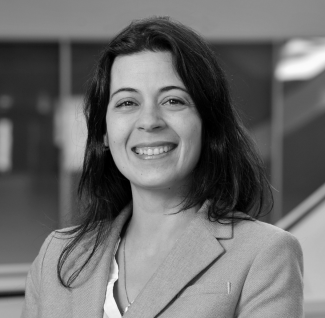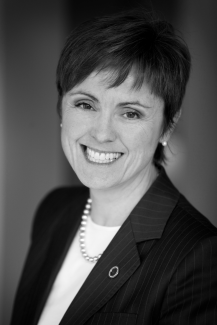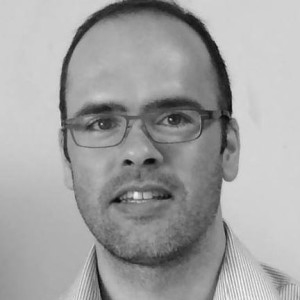Researchers
RHHDS researchers are involved in health data science endeavours across the entire data lifecyle, from capture to sane management and responsible exploitation.

RHHDS researchers are involved in health data science endeavours across the entire data lifecyle, from capture to sane management and responsible exploitation.

Assistant Professor
Faculté des sciences et de génie
Université Laval
Elsa Rousseau est professeure adjointe au Département d’informatique et de génie logiciel de la Faculté des sciences et de génie à Université Laval, et au sein du Centre NUTRISS-Nutrition, santé et société. Son programme de recherche porte sur l’étude des interrelations entre le microbiote, les bactériophages et la nutrition, via l’élaboration d’approches en intelligence artificielle pour déterminer leurs impacts sur la santé cardiométabolique.
Elsa a obtenu son diplôme d’ingénieure en bio-informatique et modélisation à l'INSA Lyon en 2011, puis son doctorat de l’université de Nice Sophia Antipolis en 2016, en modélisation de l’épidémiologie et de l’évolution des virus. Elle a ensuite réalisé deux postdoctorats, un premier chez IBM, dans leur réputé Centre de recherche Almaden à San Jose (CA), en modélisation mathématique des dynamiques de populations virales pour l’élaboration d’un nouveau type de traitement, puis un second dans le laboratoire de Jacques Corbeil au Centre de recherche du CHU de Québec-Université Laval, en codirection avec François Laviolette, en bio-informatique et intelligence artificielle pour l’analyse de données métagénomique en santé.
Elsa est membre régulière du Centre de recherche en données massives de l'Université Laval (CRDM), de l’Institut intelligence et données (IID), de l’Institut sur la nutrition et les aliments fonctionnels (INAF), et membre associée à l’Observatoire international sur les impacts sociétaux de l’IA et du numérique (OBVIA).

Professor
Faculté des sciences et de génie
Université Laval
Philippe Després is a full professor in the Department of Physics, Engineering Physics and Optics and member of the Cancer Research Center of Université Laval, medical physicist at CHU de Québec and a regular researcher at its affiliated Research Center, membrer of the Institute intelligence and data of Université Laval and member of the Researcher Council of the New Digital Research Infrastructure Organization (NDRIO). He is the designated principal investigator of the RHHDS program.
He was trained at Université Laval (MSc 2000, Physics), Université de Montréal (PhD 2005, Physics) and University of California, San Francisco (postdoc 2005-2007, Biomedical Engineering, Molecular Imaging).
Professor Philippe Després is involved in several projects encompassing hardware and software aspects of medical imaging modalities, notably low-dose X-ray imaging, advanced imaging techniques, and solid-state detectors for molecular imaging. He pioneered high-performance computing (HPC) approaches with commodity graphics hardware (GPUs) that led to innovative applications in image processing/reconstruction and radiation dose calculations, including a fast GPU-based Monte Carlo engine to simulate energy transport in matter (GPUMCD).
As a HPC expert, professor Philippe Després is also involved in data-driven research approaches, data infrastructures and FAIR-compliant research data management. In this regard, he is responsible of biomedical data at CHU de Québec of Université Laval Research Center, the data architect of the PULSAR health research platform, the assistant director of the Big Data Research Center at Université Laval, and the co-lead of the sustainable health axis of the Observatoire international sur les impacts sociétaux de l’intelligence artificielle et du numérique (OBVIA).

Professor
Faculté des sciences et de génie
Université Laval
François Laviolette is a full professor at Department of Computer Science and Software Engineering at Université Laval, director of the Big Data Research Center (BDRC) at Université Laval, holder of Canadian Institute for Advanced Research (CIFAR-AI) Chair on Interpretable Machine Learning in Artificial Intelligence (2020-2025), holder of Canadian industrial NSERC chair, Machine Learning for Insurance (2018-2023), member of the scientific committees of the PULSAR project, the VALERIA platform and the Intelligence and Data Institute (IID). At the national and international level, he is an associate member of the MILA Institute, member of the artificial intelligence (IA)/health committee of the Fonds de Recherche du Québec (FRQ), the scientific committee of the DATA AI Institute in France and the AI expert committee of the Observatoire international sur les impacts sociétaux de l’IA et du numérique (OBVIA) at Université Laval.
In 1984 he obtained a bachelor's degree in mathematics, in 1987 a master's degree and in 1997 a Ph.D. degree in mathematics from the University of Montreal.
His research interests are focused on artificial intelligence especially machine learning, learning theory, interpretable AI, graph theory, automated verification and bioinformatics.
Professor François Laviolette is a leader in PAC-Bayesian theory, a branch of learning theory that provides a better understanding of machine learning algorithms and to design new ones. He is interested, among others, in those that solve new types of learning problems, especially those related to genomics, proteomics, drug discovery, etc. He is also interested in making artificial intelligences interpretable in order to better integrate systems where humans are in the decision loop.
With his expertise Professor François Laviolette plays a significant role in the realization of several multidisciplinary projectsin the Big Data Research Center (BDRC) in insurance, health, bioinformatics and life science, ethics and social acceptability, ... Recently, he focused on innovation in the aerospace industry by co-leading an international project (DEpendable & Explainable Learning) in collaboration with partners from the academic research community and industry with a significant national and international budget ($7.5M and $40M respectively). This project aims to use the scientific basis for what should be a certifiable AI when embedded in a critical system.

Associate Professor
Faculté des sciences et de génie
Université Laval
Anne-Sophie Charest is an associate professor in the Department of Mathematics and Statistic at Université Laval. She is the director of the certificate and bachelor programs in statistic.
She holds a bachelor degree in probability and statistic from McGill University (2007) and a doctor degree in statistic from Carnegie Mellon University, in Pittsburgh (Pennsylvania, 2012).
Her research interests are focused on statistical data confidentiality including synthetic data set creation and differential confidentiality criterion, survey data analysis, treatment of missing data and the Bayesian inference approach.
Anne-Sophie Charest is a regular member at the Big Data Research Center (BDRC)-Université Laval and the Mathematics Research Center (MRC)-Université de Montréal.

Assistant Professor
Faculté de médecine
McGill University
Dr. Isabel Fortier is researcher at the Research Institute of the McGill University Health Centre (RI-MUHC) where she leads the Maelstrom Research program.
This program aims to provide the international research community from diverse disciplines with resources (expertise, methods, and software) to leverage and support data harmonization and integration across studies. The Maelstrom Research team develops methods and software, conducts methodological research, generates comprehensive catalogues of study metadata, and creates infrastructures supporting data management, harmonization and co-analysis.
The team is collaborating on or leading the data cataloguing and harmonization activities of a number of national and international projects including IALSA (Integrative Analysis for Longitudinal Study Analysis, more than a 100 studies), ReACH (Research Advancement through Cohort Cataloguing and Harmonization, 26 studies) and CPTP (Canadian Partnership for Tomorrow Project, 5 studies).
Ultimately, Maelstrom Research resources help to optimize the use of existing research data, enhance capacity for national and international collaborative and cross-disciplinary research (outputs generated faster and at lower cost), and improve quality of research practices.

Professor
Département de mathématiques et de génie industriel
Polytechnique Montréal
After completing his PhD in computer science and operations research at Université de Montréal, professor Louis-Martin Rousseau joined the Mathematics and Industrial Engineering Department at Polytechnique Montréal in 2003.
He was one of the first researchers to investigate the hybridization of classical operations research methods and constraint programming, which comes from artificial intelligence. His current research focuses on transportation logistics, scheduling and resource optimization in healthcare.

Associate Professor
Département de mathématiques et de génie industriel
Polytechnique Montréal
Nadia Lahrichi is an associate professor at the Department of Mathematics and industrial engineering at Polytechnique Montreal.
Her research is mainly focused towards applying modeling and operational research tools to improve patient flow in the healthcare system. She uses exact, metaheuristics and discrete event simulation approaches to tackle patient and resource scheduling problems. She actively collaborates with various organizations from the heath care sector to solve practical problems such as patient booking for chemo, radiotherapy treatments and diagnostic imaging, nurse and physician scheduling, operating room planning and scheduling or homecare planning.
From the Canadian Operational research society, professor Lahrichi has received the award for outstanding application of operational research for solving the home health care routing and scheduling problem.

Professor
Faculté de médecine
Université Laval
First trained as an architect, Dr. France Légaré has practiced family medicine in Quebec since 1990 and is a full professor in the Department of Family Medicine and Emergency Medicine at Université Laval (Quebec, Canada). She is an internationally recognized leader in shared decision-making (SDM) and knowledge translation research. In 2005, she obtained her PhD in Population Health from the University of Ottawa under the supervision of Dr. Annette O’Connor.
From June 2006 to May 2016, Dr. Légaré held the title of Tier 2 Canada Research Chair in Implementation of Shared Decision Making in Primary Care. As of June 1st 2016, she holds the title of Tier 1 Canada Research Chair in Shared Decision Making and Knowledge Translation.
Dr. Légaré was nominated PI/co-PI on 35 grants and Co-I on 49 grants in the past seven years. She has published more than 363 papers, 343 of which are PubMed indexed; her H index is 69 and she has > 25 086 citations (Google Scholar). In 2017, 2018 and 2019, she was listed as one of the top 1% most cited scientists worldwide (Clarivate Analytics), indicating that her work has been repeatedly judged by her peers to be of notable significance and utility. A SDM bibliometric analysis recently identified France Légaré as the person who has participated in the most studies (n=101) since 2009. Her research program aims at implementing shared decision making in clinical practices with a focus on home care and prenatal screening programs.
In addition to SDM, primary care and knowledge translation, she is also an expert in implementation science and scale-up science. With her colleagues she has developed several SDM interventions for various contexts and trained a large number of healthcare professionals. For example, she has trained more than 270 family physicians in SDM and optimal use of antibiotics for acute respiratory infections. More recently, she trained more than 600 healthcare professionals in an interprofessional approach to SDM in home care.
Lastly, her team was the first to create an online inventory of SDM training programs, which is updated on a regular basis. All of her research initiatives can be consulted on http://www.decision.chaire.fmed.ulaval.ca/france-legare.

Professor
Faculté de droit
Université de Montréal
Catherine Régis is a full professor at the Faculty of Law at the University of Montreal, holder of the Canada Research Chair in Collaborative Culture in Health Law and Policy (since 2013), co-responsible for the Hub santé –politique, organizations and law (H-POD) and founding member of the JusticIA research group (justice-ia.com). She is also a researcher at the Research Center in Public Law, at the Research Center of the University Hospital Center of the University of Montreal (CRCHUM) and at the Observatoire international sur les impacts sociétaux de l’intelligence artificielle et du numérique (OBVIA).
She holds a law degree from the University of Montreal, a master's degree in health law from the University of Sherbrooke, a certificate in clinical ethics from the University of Geneva and a doctorate in law (SJD) from the University from Toronto.
Professor Régis has been a member of the Quebec Bar since 1999 and an accredited mediator. Recipient of several prizes, grants and subsidies, notably from the Canada Research Chairs program, the Canadian Institutes of Health Research, the Quebec Research Funds, the Ministry of International Relations and La Francophonie and the Georg Stellari Fund, she is regularly contacted by the health network as a consultant and trainer. She collaborates with several interdisciplinary and international research teams, notably in medicine, machine learning, management, engineering, public health and psychology.
She is a member of various committees in the health and social services sector, including that of the Ethics Committee from the Public Health Agency of Canada and the University of Montreal’s Health Data Science Committee. She is regularly sought out as a visiting professor in various countries, including France and Israel. His work, published in numerous national and international journals, focuses mainly on digital innovation in health, collaborative governance in health systems, the normative action of the World Health Organization and innovative models of medical practice.

Assistant Professor
Medical Physics Unit
McGill University
Dr. John Kildea is a medical physicist at the McGill University Health Center and an assistant professor in Oncology at McGill University.
His research interests are focused on the carcinogenic effects of ionizing radiation for radiotherapy and space travel and the use of informatics techniques to improve the healthcare experiences and health outcomes of patients.
With radiation oncologist Dr. Tarek Hijal, Dr. Kildea co-leads the development of the Opal patient portal (opalmedapps.com). Opal was named Quebec e-Health solution of the year in 2019 by Le Point Santé et Services Sociaux and was awarded the prestigious 2019 Prix d’excellence–Coup de cœur des ministres of the Quebec Ministry of Health.
Faculté des sciences et de génie Université Laval
Faculté des sciences et de génie Université Laval
Faculté de médecine Université Laval
Faculté des sciences Université de Sherbrooke
Faculté des sciences et de génie Université Laval
Faculté des sciences et de génie Université Laval
Faculté des sciences et de génie Université Laval
Faculté de médecine Université Laval
Faculté des sciences et de génie Université Laval
Faculté de médecine Université Laval
Faculté des sciences de l'éducation Université Laval
Institut Droit et Santé Université de Paris
Faculté des lettres et des sciences humaines Université Laval
Faculté de médecine Université Laval
Faculté de médecine Université Laval
Faculté de médecine Université Laval
Faculté de droit Université Laval

Featured project
Delirium is a condition that, when left unmanaged, is associated with increased mortality and longer hospitalization of patients in intensive care; therefore, its detection should be an integral part of care. It is characterized by confusion, anxiety and reduced alertness. It is estimated that 75% of delirium cases are not detected on admission to hospital. Detecting such an acute condition requires frequent monitoring of participants, which is labor intensive and requires expertise.